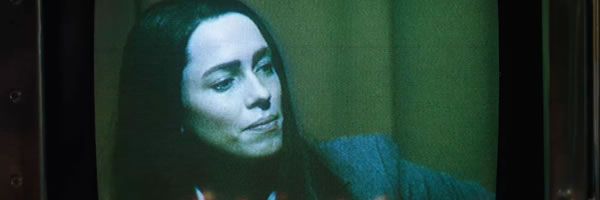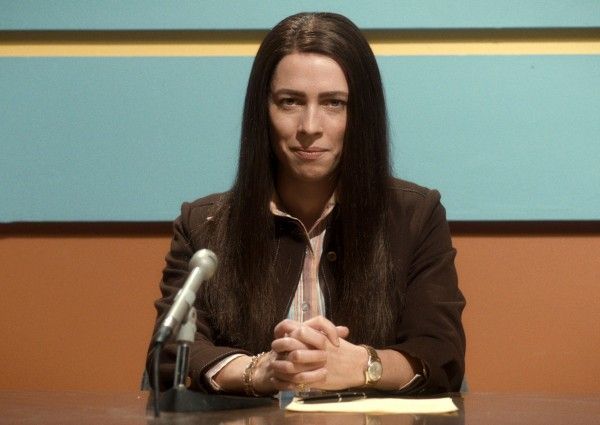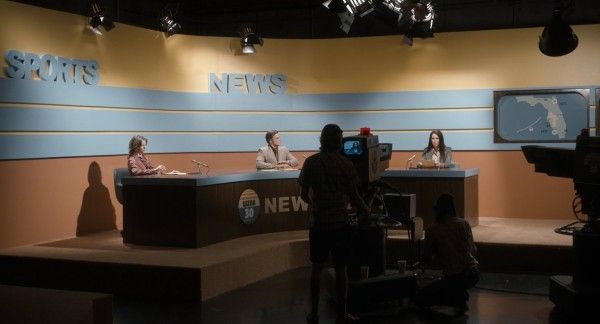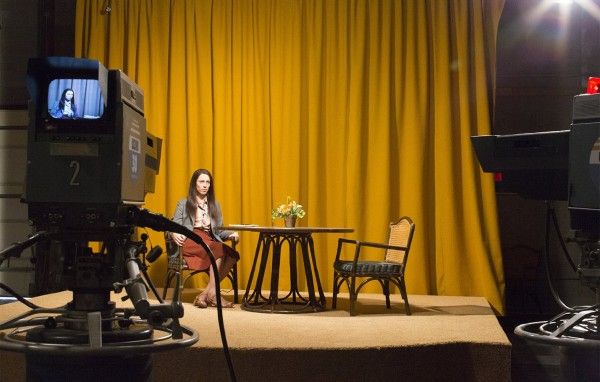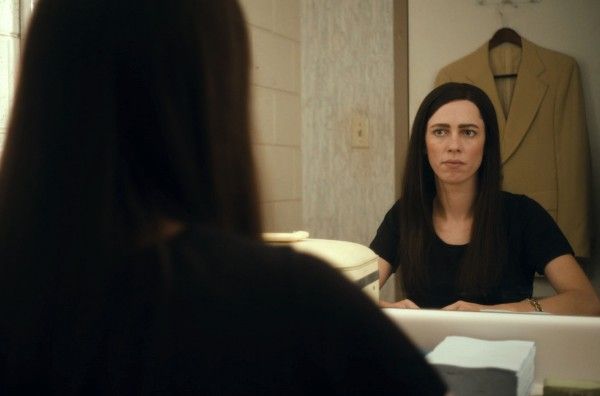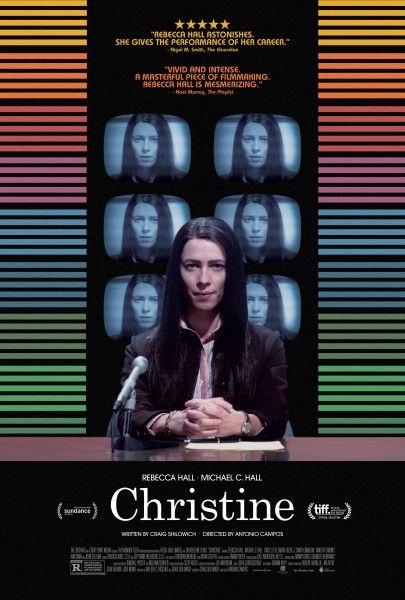From director Antonio Campos and writer Craig Shilowich, and based on true events, Christine tells the story of Christine Chubbuck (brought to life in a remarkably human performance by Rebecca Hall), a woman who always felt like she was destined for bigger things, in pursuit of an on-air position in a larger market than her local Sarasota, Florida news station, but instead found herself butting heads with a boss that only cared about driving up ratings. As her world continued to close in on her, Christine made a shocking and surprising decision that changed the lives of everyone who knew her.
At the film’s press day, actress Rebecca Hall sat down with Collider for this exclusive interview, in which she talked about how proud she is of Christine, humanizing the woman behind the actions, that everything in the film comes from fact, and the type of research she did for her performance. She also talked about seeking out the unicorn roles, why she always likes to do something different, and her upcoming romantic dramedy Permission, opposite Dan Stevens.
Collider: You give a phenomenal performance in this film!
REBECCA HALL: Thank you! I know it’s not a cheery story, but there’s something about this film that makes me extraordinarily proud. And this is not me, it’s the writing and directing, honestly. Yes, it’s a film about someone who commits suicide, but there is nothing about it that revels in darkness, and frankly there could have been that version of this film. It’s full of someone who’s trying to live, and it’s full of moments of her wit and moments of her life. There’s a sense of loss and grief that shouldn’t have happened, running through the film, that mustn’t be mistaken for despair or nihilism because it’s not. There’s a real humanity at the center of this film. There’s someone trying to live, and there’s a bunch of other people also trying to live, and they’re all doing their best. There are no baddies. Everyone is trying to do their best for her. The real tragedy is that she doesn’t see it. Some people have the tools to deal with what life throws at them, and other people just don’t have the tools.
It could even have been something as simple as maybe she was just in the wrong career and would have been happier doing something else.
HALL: It’s possible, but I don’t know. Those are the questions that the audience is left with and that we’re left with. There’s no easier answer to any of that.
If you read anything about Christine Chubbuck, you know what happened to her, but it doesn’t hang as a black cloud over this entire movie.
HALL: The film isn’t about the act. It’s about humanizing someone who, without the film, is defined by the act and does live on the internet as one of the five most shocking things, of all time, with a voyeuristic, macabre fascination. This film is an attempt to humanize that. It shows someone who is dealing with mental health issues, but on a more basic level is dealing with professional and personal disappointment, and living in a time where she’s operating in an unmeritocratic work environment. Everyone is always saying, “You’re the smartest woman here,” and they use everything she gives, but no one is bumping her up the ladder, giving her a leg up, or helping her. And in the midst of all that, she’s profoundly isolated and incapable of talking to anyone or sharing anything of what’s going on inside with the rest of the people. There are a lot of films where people are misfits or different and it’s cool. It’s not that there’s anything wrong with that, but it’s rare that you see something that shows pain from that, and the pain from feeling that you are other and different, and at the same time, not wanting to be anything other than you. It’s heartbreaking. The driving force of this film is the empathy and compassion towards this person, not fascinating of the act. It’s what she signifies. It’s all the talking points that she raises.
It’s interesting because everyone keeps pointing out what she’s doing wrong, and nobody says, “Thank you for doing that.”
HALL: Can you imagine operating in Sarasota, Florida when your boss is essentially saying, “Bring me juicier stories. Bring me more blood and guts.” And you’re out there on the streets and there isn’t much, and she feels she should be reporting on the fact that there isn’t anything bad and that we don’t have to tell everyone how terrible the world is because we know where that leads. The notion that fear can be used to manipulate and strong-arm people into belief systems is not something that feels historical. It’s something that feels current. So, it resonates on many, many levels.
How did you approach playing Christine Chubbuck and figuring her out?
HALL: My job isn’t to be an investigative journalist. This is not a factual documentary. This is drama. This is about presenting, hypothesizing and understanding emotional states. All of those questions about her emotional state went to the grave with her. There was no way to find those out. When someone is living that closed off, it’s very difficult. So, in that sense, there wasn’t actually much to research. Craig Shilowich, the writer, went to Sarasota and spoke to friends and co-workers. Everything that’s in the film comes from fact, except for the actual conversations. The things that are not true are more process of elimination. He left out a lot of her other family members because he wanted it to be a workplace drama, more than anything else. He wanted one aspect, so he included her mother, but that’s it.
And then, you have to take into account that Craig Shilowich had things that he was personally interested in exorcizing. He came to this story because of his own battle with depression, which he went through in his 20s. It arrived out of nowhere, and then it left him out of nowhere, as happens. And one of the things that got him out of it was finding work that he loved. So, when he came across the Christine Chubbuck story, it’s not that he was on the five most shocking list and went, “Oh, that’s cool. That would make a good movie.” He didn’t even go, “Oh, weird,” like most people do when they see it. He had a real connection with it because he had this moment where he thought, “Well, imagine if I had gone through what I went through, but I’d been a woman, and a woman in the ‘70s, and a woman in the ‘70s that had my work taken away from me. Would I have made it? I don’t know.” And that hit him. So, he knew this was a way that he could deal with a lot of the things he was negotiating. It came from an honest place. He did that work.
My job was to make what he wanted to present breathe and live, and be real, human and emotionally true. I don’t really know how to do that. There’s no textbook. It took me about three months to feel like I knew that I had created and imagined a character that came from 15 minutes of footage that I watched a lot. That was all that I had. I lived with that and let that work with my imagination for three months. I watched a lot of ‘70s films to help root in the period, and I read a lot of books about depression, being bipolar, autism spectrum, schizophrenia and suicide. I found all that stuff very interesting, but it didn’t necessarily help because so much of that stuff wouldn’t have been available to her or anyone around her, at that time. It was more about just trying to intuit what she was going through. That footage was the starting off point. I’d just watch it and feel things, and then I’d try to observe what I was feeling, and try to understand why, and try to imagine what it might be like to be her and feel those things. And I observed what happened to my body and what happened to my voice, as a result of feeling an emotion. It wasn’t an external thing. I don’t know how to describe it, really. But, it took a long time to be real and to be something that I was very close to. And then, the actual filming was 29 days.
One of the things I love about your career is that your characters are so interesting and so all over the map, and you have a film coming out, with Dan Stevens, about a woman who decides to date other men before spending the rest of her life with her boyfriend. Was part of the appeal of Permission the fact that it sounds like it’s a bit lighter subject?
HALL: I think I gravitate towards things for all sorts of reasons, like is it different to the thing I’ve just done? I don’t want to immediately repeat myself ‘cause that’s not very interesting. That doesn’t hold my attention. I wonder, is it going to be fun? Is it going to be a worthwhile piece of art? And then, you get the unicorns, like this one. And I do really think Christine is a unicorn, which are the ones where you go, “This one is the reason why I believe in acting, as an art form.” I know that sounds super grand, but it’s why you believe in it. It’s the opportunity where you get to bring empathy to a character that otherwise we’d all probably not get and turn our backs on because she did something extraordinarily violent, and not just to herself, but everyone else. It’s really hard to get your head around that and not condemn her for it, but we can’t condemn her for it. We have to understand how you get to that point. I think that’s crucial and human. That’s the value of acting, as an art form. That’s why I do it. So, when the unicorns come, I will do them. Otherwise, I’ll do the things that are fun and challenging, in different ways.
Would you consider Permission a twist on the romantic comedy?
HALL: Yeah, it’s more of a romantic dramedy. That came about because a good friend of mine, who is a director and writer, called Brian Crano, had been workshopping the idea in his head for a long, long time. Every draft of the script, I read and noted. Eventually, he was like, “I think I’m going to make it.” And I was like, “Well, I’ll do it, if you want me to do it.” Dan Stevens did it because he’s a good friend. And I produced it.
It must be nice to be able to sign on as a producer and get to have a bit more of a say.
HALL: Yeah, it is. You don’t always, let’s be honest.
Christine is in theaters in New York City, and opens in Los Angeles on October 21st.

